Archives
-
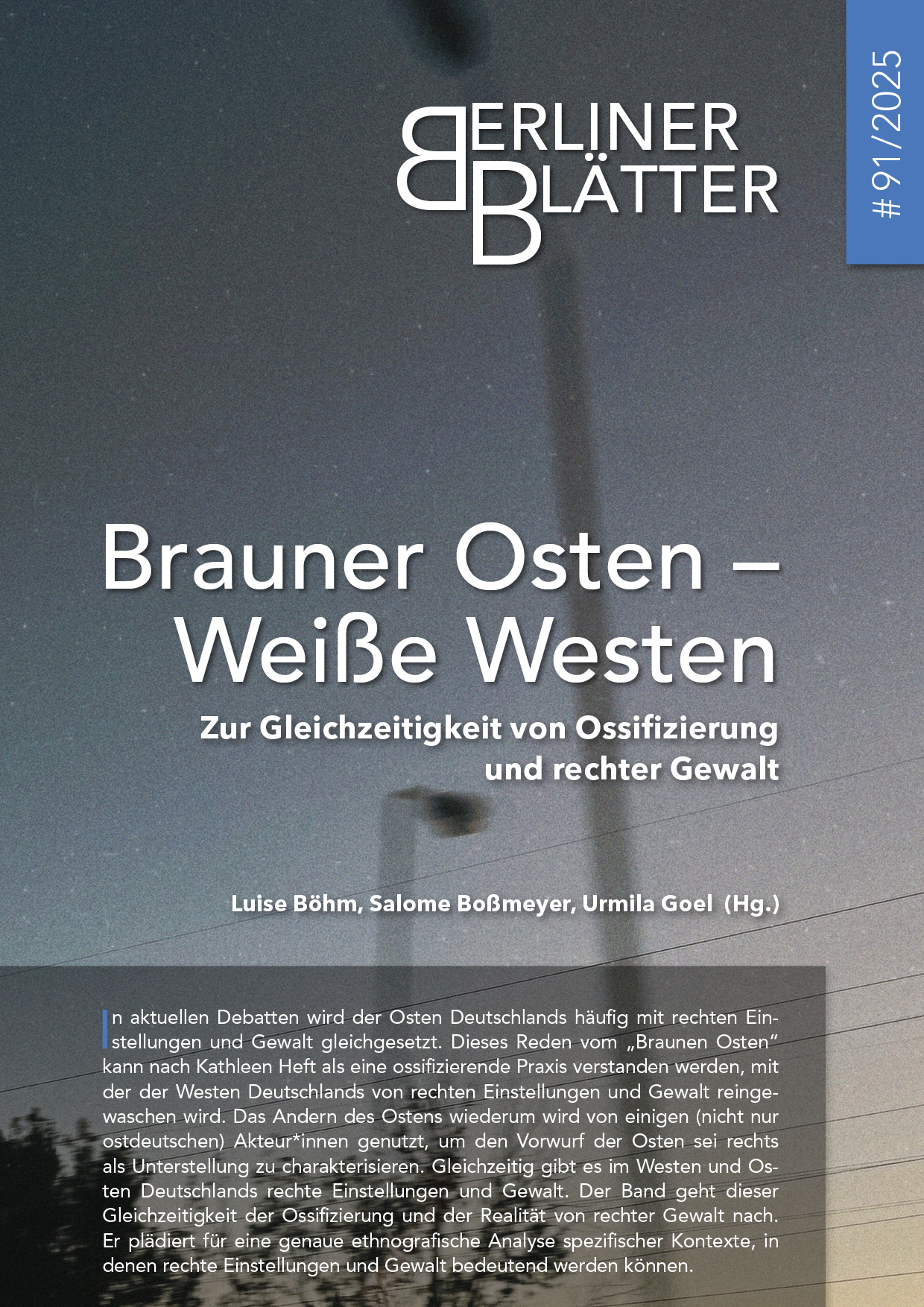
"Brauner Osten". On the Simultaneity of Right Wing Realties and Processes of Easternisation
Vol. 91 (2025)In current debates, East Germany is often associated with right-wing attitudes and violence. According to Kathleen Heft, the notion of a 'Brown East' can be understood as an easternising practice (“Ossifizierung”) that absolves West Germany of right-wing attitudes and violence. The othering of the East, in turn, is used by some (not only East German) actors to characterise the accusation that the East is right-wing as an insinuation. At the same time, right-wing attitudes and violence exist in both West and East Germany. This volume explores the simultaneous processes of “Ossifizierung” and the reality of right-wing violence. It advocates a precise ethnographic analysis of the contexts in which right-wing attitudes and violence can become significant.
-
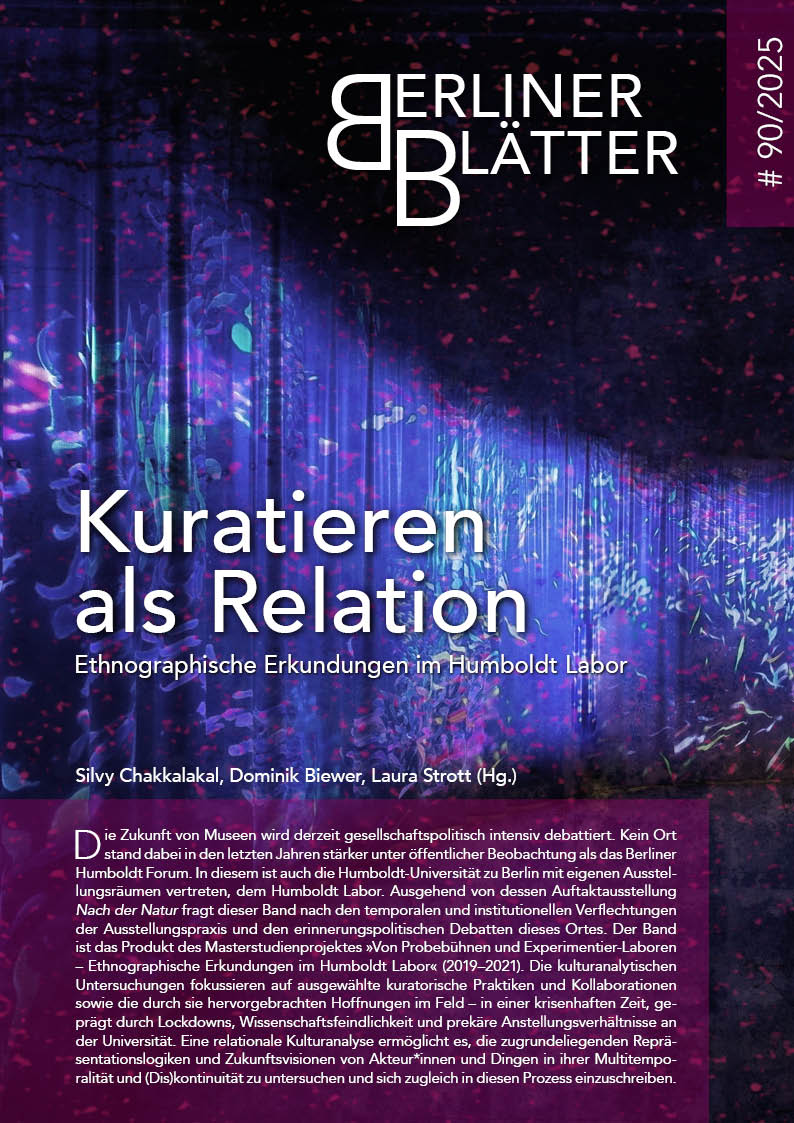
Kuratieren als Relation – Ethnographische Erkundungen im Humboldt Labor
Vol. 90 (2025)Die Zukunft von Museen wird derzeit gesellschaftspolitisch intensiv debattiert. Kein Ort stand dabei in den letzten Jahren stärker unter öffentlicher Beobachtung als das Berliner Humboldt Forum. In diesem ist auch die Humboldt-Universität zu Berlin mit eigenen Ausstellungsräumen vertreten, dem Humboldt Labor. Ausgehend von dessen Auftaktausstellung Nach der Natur fragt dieser Band nach den temporalen und institutionellen Verflechtungen der Ausstellungspraxis und den erinnerungspolitischen Debatten dieses Ortes. Der Band ist das Produkt des Masterstudienprojektes »Von Probebühnen und Experimentier-Laboren – Ethnographische Erkundungen im Humboldt Labor« (2019–2021). Die kulturanalytischen Untersuchungen fokussieren auf ausgewählte kuratorische Praktiken und Kollaborationen sowie die durch sie hervorgebrachten Hoffnungen im Feld – in einer krisenhaften Zeit, geprägt durch Lockdowns, Wissenschaftsfeindlichkeit und prekäre Anstellungsverhältnisse an der Universität. Eine relationale Kulturanalyse ermöglicht es, die zugrundeliegenden Repräsentationslogiken und Zukunftsvisionen von Akteur*innen und Dingen in ihrer Multitemporalität und (Dis)kontinuität zu untersuchen und sich zugleich in diesen Prozess einzuschreiben.
-
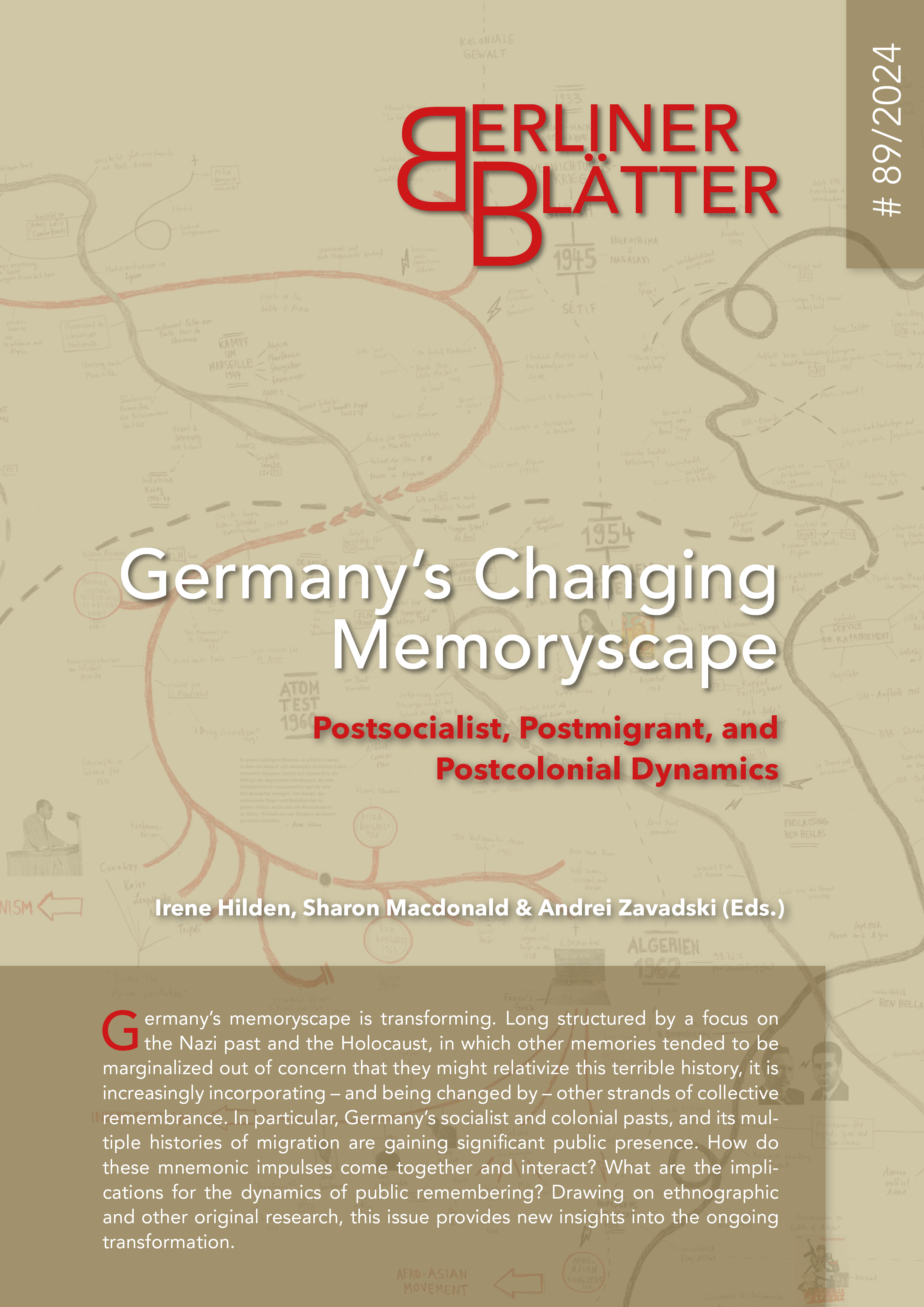
Germany's Changing Memoryscape. Postsocialist, Postmigrant, and Postcolonial Dynamics
Vol. 89 (2024)Germany’s memoryscape is transforming. Long structured by a focus on the Nazi past and the Holocaust, in which other memories tended to be marginalized out of concern that they might relativize this terrible history, it is increasingly incorporating – and being changed by – other strands of collective remembrance. In particular, Germany’s socialist and colonial pasts, and its multiple histories of migration are gaining significant public presence. How do these mnemonic impulses come together and interact? What are the implications for the dynamics of public remembering? Drawing on ethnographic and other original research, this issue provides new insights into the ongoing transformation.
-
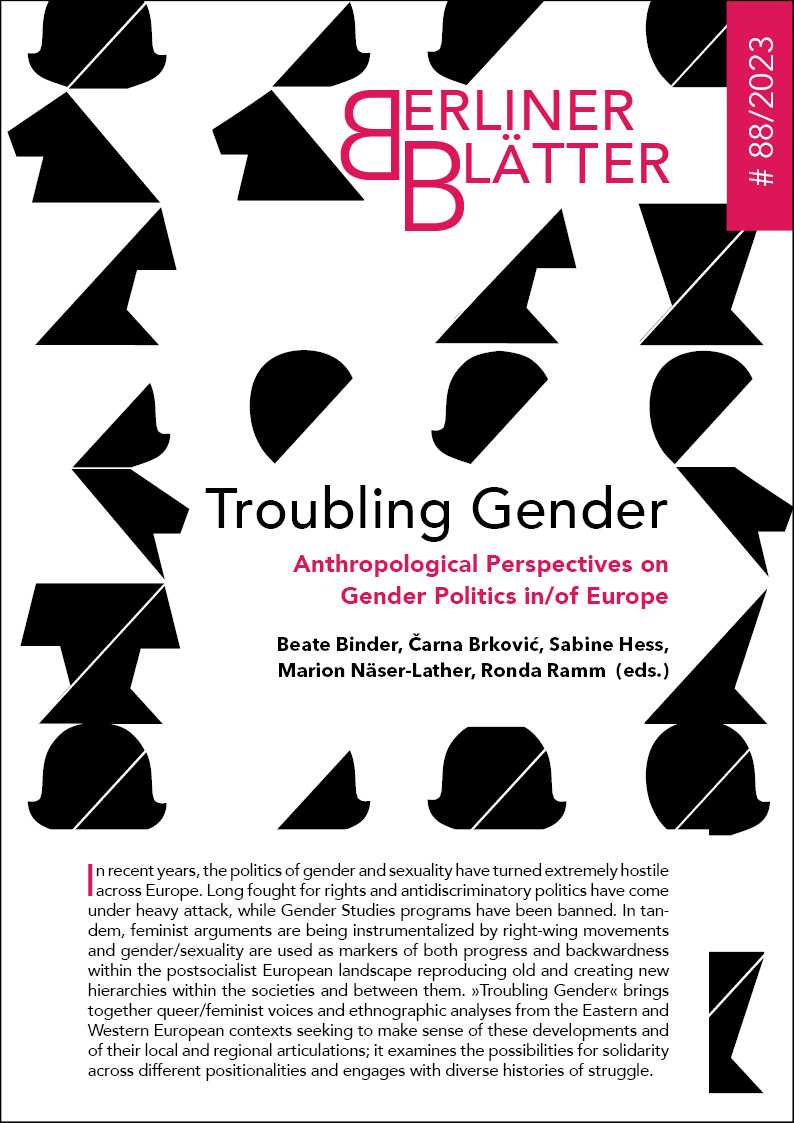
Troubling Gender. Anthropological Perspectives on Gender Politics in/of Europe
Vol. 88 (2023)In recent years, the politics of gender and sexuality have turned extremely hostile across Europe. Long fought for rights and antidiscriminatory politics have come under heavy attack, while Gender Studies programs have been banned. In tandem, feminist arguments are being instrumentalized by right-wing movements and gender/sexuality are used as markers of both progress and backwardness within the postsocialist European landscape reproducing old and creating new hierarchies within the societies and between them. »Troubling Gender« brings together queer/feminist voices and ethnographic analyses from the Eastern and Western European contexts seeking to make sense of these developments and of their local and regional articulations; it examines the possibilities for solidarity across different positionalities and engages with diverse histories of struggle.
-
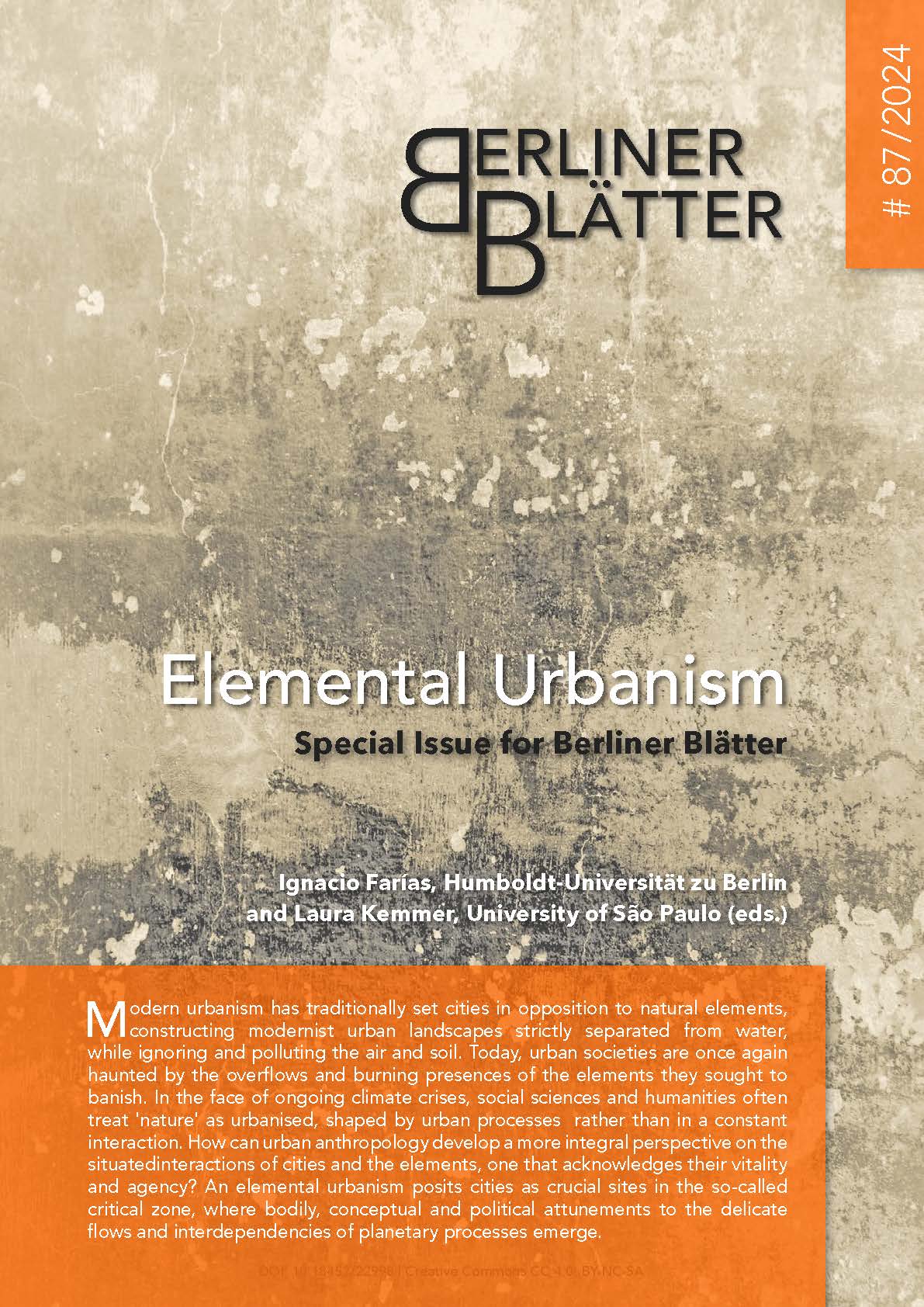
Urbanising Elements
Vol. 87 (2024)Modern urbanism has traditionally set cities in opposition to natural elements, constructing modernist urban landscapes strictly separated from water, while ignoring and polluting the air and soil. Today, urban societies are once again haunted by the overflows and burning presences of the elements they sought to banish. In the face of ongoing climate crises, social sciences and humanities often treat 'nature' as urbanised, shaped by urban processes rather than in a constant interaction. How can urban anthropology develop a more integral perspective on the situatedinteractions of cities and the elements, one that acknowledges their vitality and agency? An elemental urbanism posits cities as crucial sites in the so-called critical zone, where bodily, conceptual and political attunements to the delicate flows and interdependencies of planetary processes emerge.
-
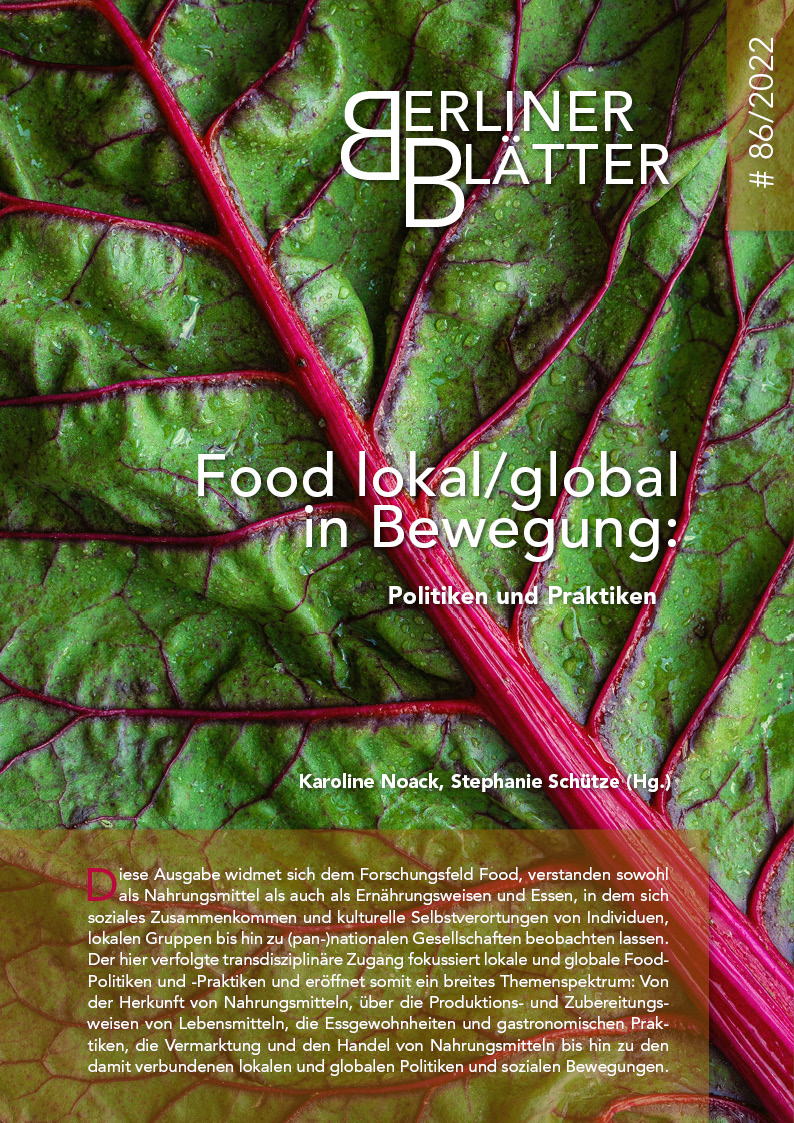
Food lokal/global in Bewegung: Politiken und Praktiken
Vol. 86 (2022)Food and nutrition are closely interwoven with lifestyles, cultural practices, consumption habits, and ideas of healthy and unhealthy living. At the same time, the handling of food, its production, processing, marketing, but also its consumption in a globalized world harbour political conflict potential. The social and cultural science analysis of food, nutrition and eating presented here is based on a transdisciplinary approach and focuses on food policies and practices. The area of food policies refers to policies and the (local) responses to the outlined global agrarian and financial economic problems in connection with diets and food as well as food production and trade. The Food Practices thematic block analyses and discusses local food and nutrition practices, in which global practices, policies and challenges, triggered not least by the Covid-19 pandemic, are reflected. Overall, the contributions show the breadth of the topic of food and the productivity of transdisciplinary research, through which tensions between the valorization of food and nutrition in the web of global and local practices and policies can be made visible and addressed.
-
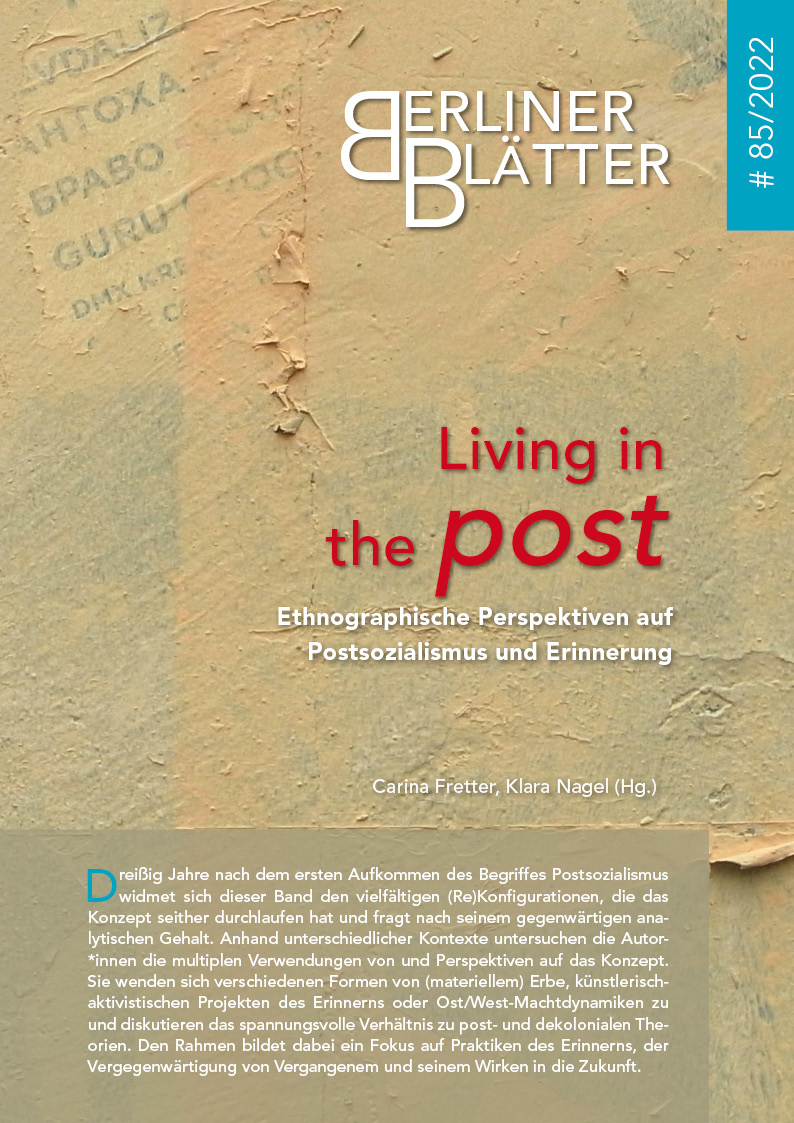
Living in the post - Ethnographic Perspectives on Postsocialism and Memory
Vol. 85 (2022)Thirty years after the emergence of the term postsocialism, this volume is dedicated to the multiple (re)configurations the concept has undergone since then and inquires its current analytical value. Looking at different contexts, the authors examine the multiple uses of and perspectives on the concept. They turn to various forms of (material) heritage, artistic-activist projects of remembering, or East-West power dynamics and discuss the ambivalent relationship to post- and decolonial theories. The articles are framed by a focus on practices of remembering, the presencing of the past and its impact on the future. -
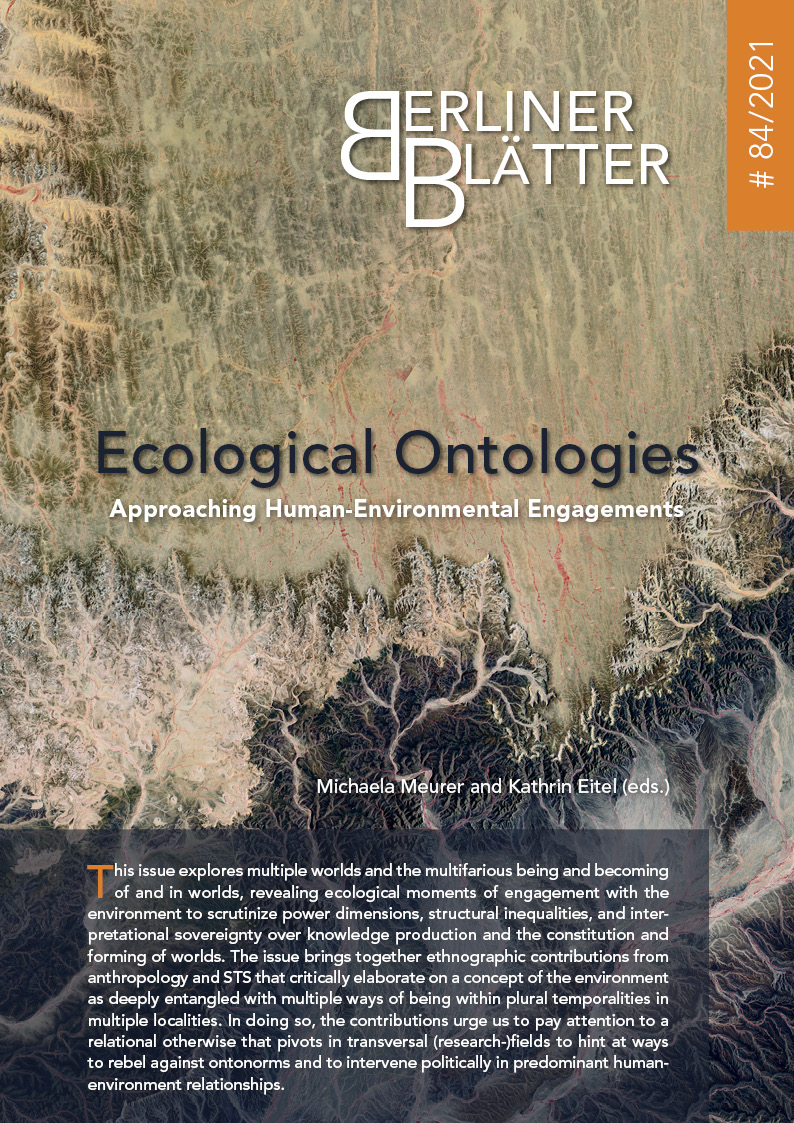
Ecological Ontologies - Approaching Human-Environmental Engagements
Vol. 84 (2021)This issue explores multiple worlds and the multifarious being and becoming of and in worlds, revealing ecological moments of engagement with the environment to scrutinize power dimensions, structural inequalities, and interpretational sovereignty over knowledge production and the constitution and forming of worlds. It brings together ethnographic contributions from anthropology and STS that critically elaborate on a concept of the environment as deeply entangled with multiple ways of being within plural temporalities in multiple localities. In doing so, the contributions urge us to pay attention to a relational otherwise that pivots in transversal (research-)fields to hint at ways to rebel against ontonorms and to intervene politically in predominant human-environment relationships.
The editors introduce their new volume in an interview with Jonas Wahmkow from the institute for european ethnology: https://rs.cms.hu-berlin.de/ceda/pages/view.php?ref=92&k=d4ca6165c7
-
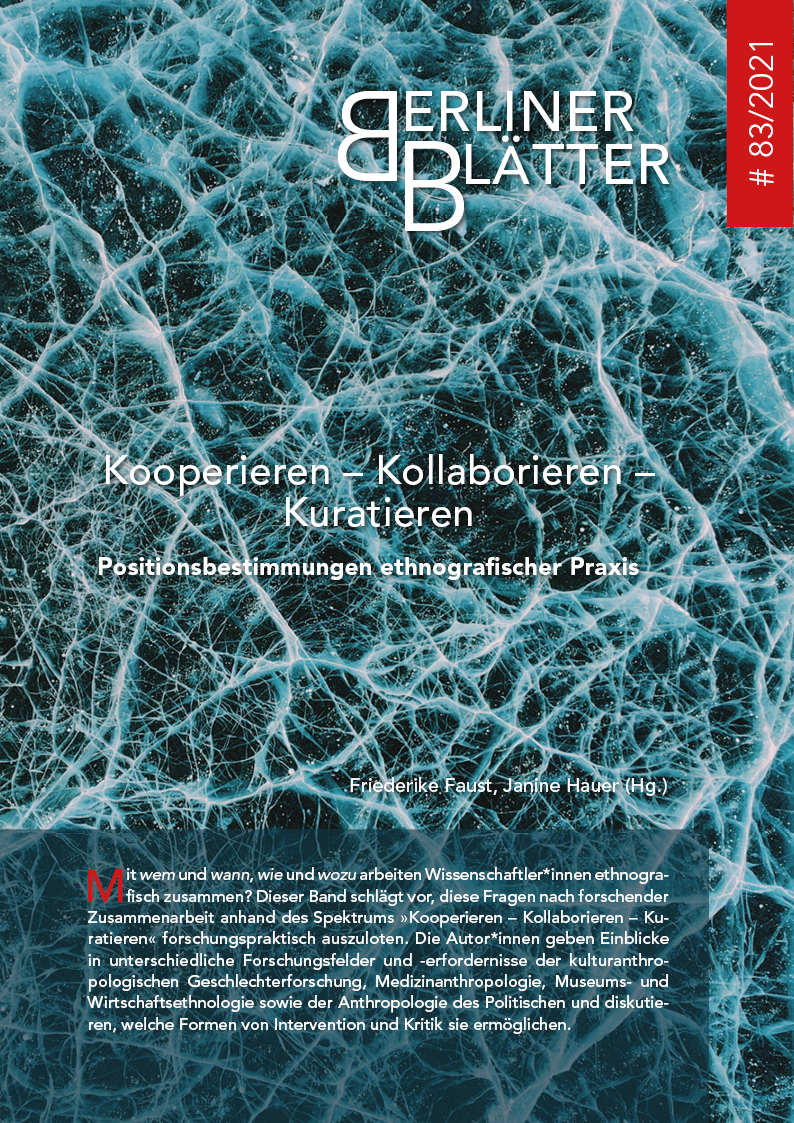
Kooperieren - Kollaborieren - Kuratieren. Positionsbestimmungen ethnografischer Praxis
Vol. 83 (2021)Mit wem und wann, wie und wozu arbeiten Wissenschaftler*innen ethnografisch zusammen? Dieser Band schlägt vor, diese Fragen nach forschender Zusammenarbeit anhand des Spektrums »Kooperieren – Kollaborieren – Kuratieren« forschungspraktisch auszuloten. Die Autor*innen geben Einblicke in unterschiedliche Forschungsfelder und -erfordernisse der kulturanthropologischen Geschlechterforschung, Medizinanthropologie, Museums- und Wirtschaftsethnologie sowie der Anthropologie des Politischen und diskutieren, welche Formen von Intervention und Kritik sie ermöglichen.
-
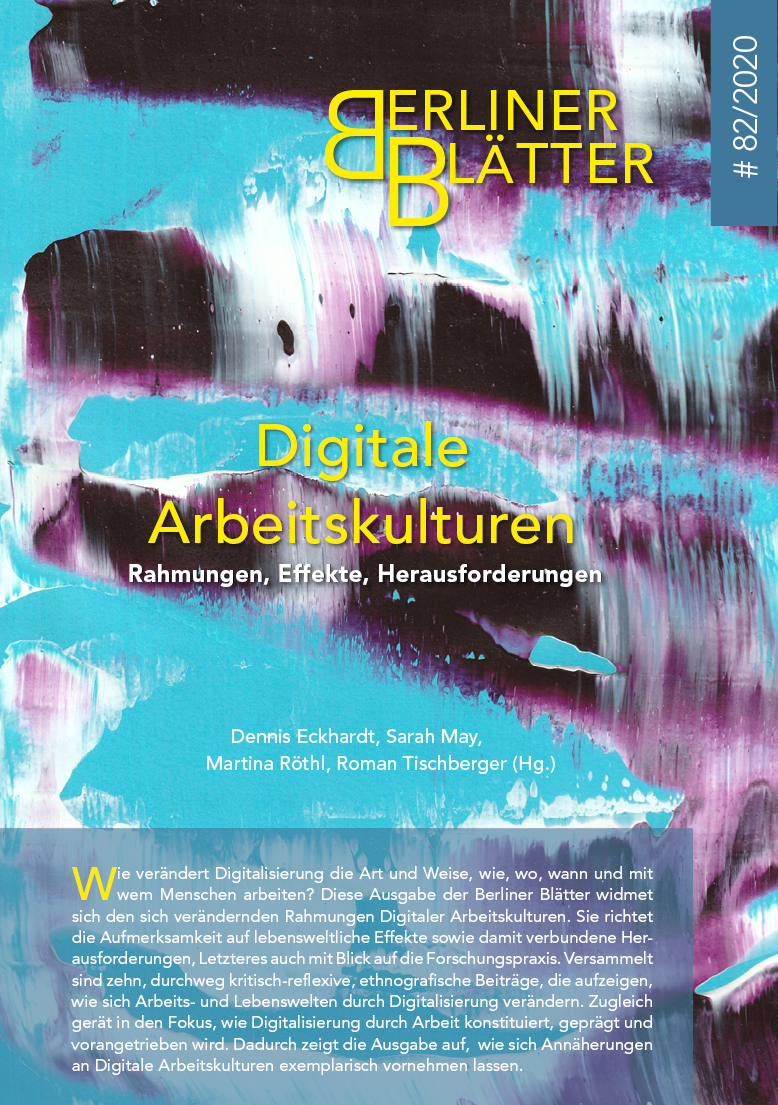
Digitale Arbeitskulturen. Rahmungen, Effekte, Herausforderungen
Vol. 82 (2020)Wie verändert Digitalisierung die Art und Weise, wie, wo, wann und mit wem Menschen arbeiten? Diese Ausgabe der Berliner Blätter widmet sich den sich verändernden Rahmungen Digitaler Arbeitskulturen. Sie richtet die Aufmerksamkeit auf lebensweltliche Effekte sowie damit verbundene Herausforderungen, Letzteres auch mit Blick auf die Forschungspraxis. Versammelt sind zehn, durchweg kritisch-reflexive, ethnografische Beiträge, die aufzeigen, wie sich Arbeits- und Lebenswelten durch Digitalisierung verändern. Zugleich gerät in den Fokus, wie Digitalisierung durch Arbeit konstituiert, geprägt und vorangetrieben wird. Dadurch zeigt die Ausgabe auf, wie sich Annäherungen an Digitale Arbeitskulturen exemplarisch vornehmen lassen.







